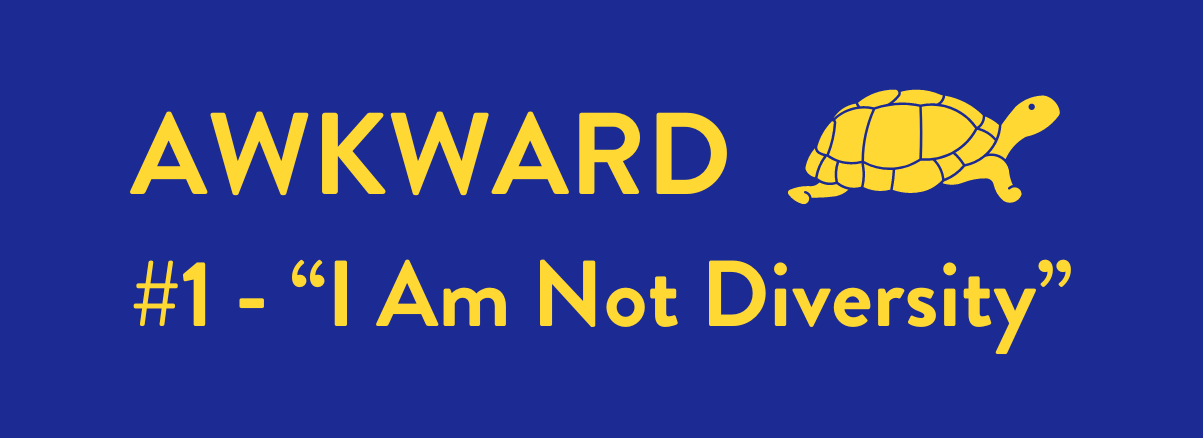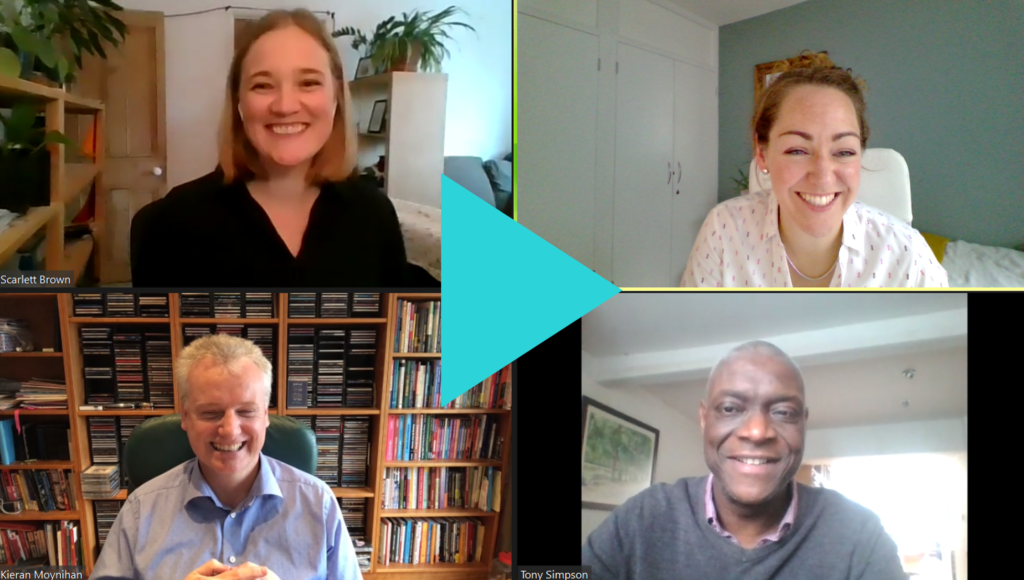
Diversity awkwardness. In this series we hit the awkward topics around boards, and we try to encourage a move towards a thoughtful discussion that will drive us to create truly dynamic boards.
He started the video call by saying “So firstly, thank you for speaking with me. I know I’m not diversity. But I’m interested in chatting to you about your non-exec director roles and hearing what advice…”
I stopped him.
What do you mean you are ‘not diversity’? That doesn’t make sense. Diversity is relative. You can’t be diverse, or not diverse, on your own.
Zoom call, Sept 2020, Sarah Pierman (Dynamic Board’s CEO) & anonymous man.
If we have got to the point where people are categorising themselves ‘diverse’ or ‘not diverse’, we are in trouble. It’s ironic that a word that was meant to inspire inclusivity now feels exclusive: some are ‘in’ with diversity and some are ‘out’.
The problem with the notion of a ‘diverse board’ is that what people seem to hear is: ‘add a woman’ or ‘someone from an ethnic minority’. It doesn’t prompt the one thing boards most need: to invest time reflecting on the mix of skills, experiences and perspectives they have, and the mix they would benefit from, but don’t yet have.
Currently UK boards do not even remotely represent society. Adding one woman might make them slightly more representative of the gender mix in the UK (51% female, 49% male *here). Adding one person from an ethnic minority might also make them more representative of the composition of the UK (86% white, 7.5% asian, 3.3% black, 2.2% mixed, 1% other *here). But that can’t be all we aspire towards. This can’t be a tick box exercise, void of thoughtfulness. And if the language we are using is getting in the way of good conversations, then let’s tackle that.
Don’t hear us wrong, we do believe we need more women and more people from ethnic minorities on boards, but as a move towards a truly brilliant mix of skills, experiences and perspectives on boards. Not as an end in itself.
So, how could we create a better language and culture around ‘diversity’?
- Stop using the word diversity. We’d challenge you to try to strip out the word ‘diversity’ from your next conversation, and instead use your own words. We particularly like using the word ‘mix’ as it’s so bland that you are forced to explain what you mean. When we remove the loaded language, we might come to realise that there are other facets of mix that we haven’t been talking about enough.
- Be honest. What’s your mix like? Look at your board, take a survey of board members, establish your current mix of skills, experiences, perspectives and thinking styles. Look at your customers, employees, suppliers, and other stakeholders, and consider their mix. Consider the topics and challenges you face as a board: including areas like technology, ESG and marketing, do you have people on your board who are insightful in those areas? We need to get more comfortable with talking honestly and openly about the mix we have in our boardrooms, and the first step to achieving that is knowing what that mix is.
- Be aspirational. The language we all use about board composition could be more thoughtful, and more focused on what we’re trying to head towards. Instead of speaking negatively about white men and using phrases like ‘male stale and pale’, it might be more helpful to paint a picture of what it’ll be like when we have a greater mix of people around a board table. And, dare we say it, perhaps instead of focusing on ‘women’ on boards, we could advocate ‘gender mix on boards‘, instead of ‘young people’ on boards we could talk about ‘multi-generational boards‘, as that is what we are actually aspiring towards.
The UK is already a world leader in our corporate governance, if we can get this right we’ll have the most dynamic boards in the world! We’ve showcased 400 paid non-executive board vacancies on Dynamic Boards since we launched in May, and we are working hard to ensure a greater mix of people than ever before are able to view those vacancies.
As I finished my call with the guy who felt he was “not diversity”, it struck me that for the right board, he could be an exceptional Non-Executive Director who would add significant value. To those who are considering applying for board roles, our suggestion is this: apply to join a board where your skills, experience and perspective are needed.
If you do that, you will be a breath of fresh air.
If you are interested in this topic please get in touch, comment on our LinkedIn post here, or email us at hello@dynamicboards.co.uk
Watch the video discussion of this blog:

___
Interested in becoming a Non-Executive Director? Dynamic Boards showcases more paid non-executive director roles than any other site. It’s totally free, and everyone is welcome. Sign up here today.
Would you like help advertising your board vacancy? We’d love to hear from you: hello@dynamicboards.co.uk


